The following is a transcript of the presentation video, edited for clarity.
There is not just one yellow brick road that takes you to social impact, R01s, tenure, pursuit of happiness and lots of stuff. There are lots of different roads of different colors and different difficulties. So the idea is this: What can we say about what those pathways are, and what are some guidelines that might be useful to you as you consider your own pathway?
How to Survive and Thrive in the First 3 Years (Typical Initial Contract)
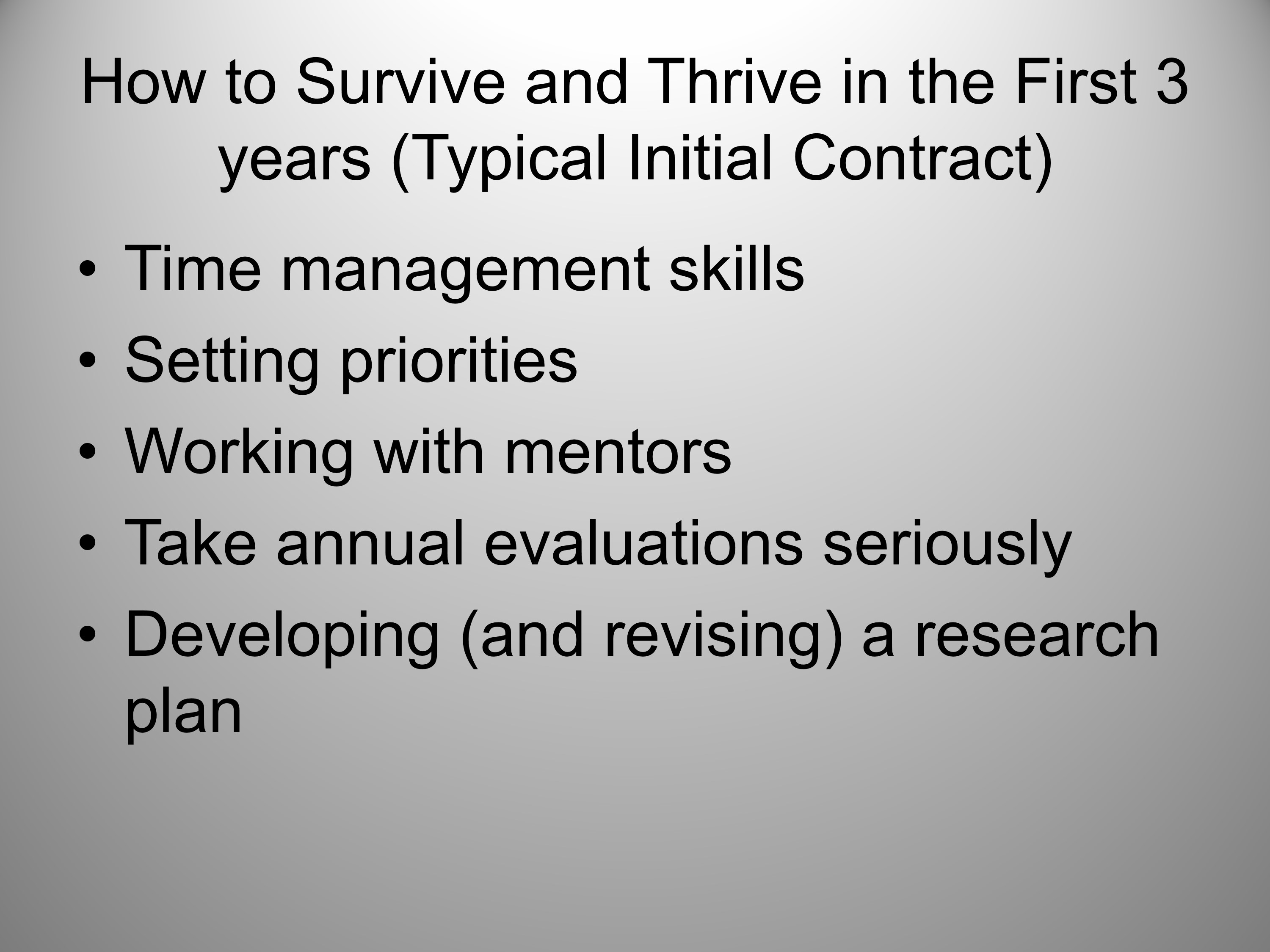
Last topic. How to survive and thrive in the first three years.
What you need. Time management skills. Set priorities. Work with your mentors.
Take annual evaluations seriously. Take notes and demonstrate that you have responded to those evaluations. If there are things that are said to you like, well you should probably shore this up, or you should do more here or less here — demonstrate that you’ve taken that to heart. Because those are the people who are going to decide how well you have progressed. Be able to show that you have responded positively and effectively to that advice.
Of course develop and revise a research plan, which we’ll talk about later on.
The Drama of the First 3 Years
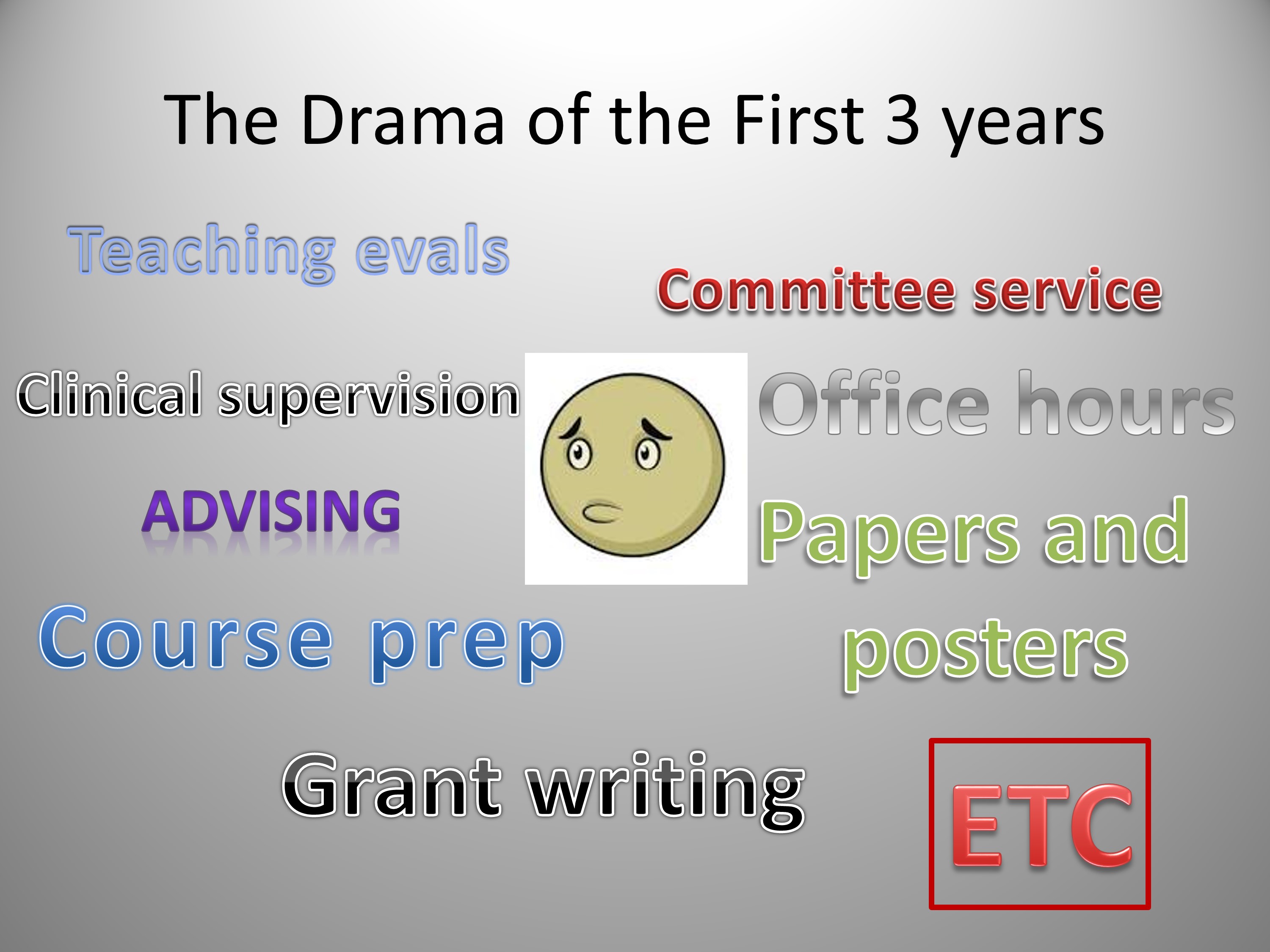
There’s a lot going on. Teaching evaluations. Committee service advising. Papers. Posters. All of it. It is a very, very busy time. My first year as assistant professor, I wondered if I would survive. In those days, not only did we have a lot of teaching and expectation of a research lab to develop, but we were considered the new broom. We were given big committee assignments so that we could prove ourselves as being worthy of department service. So it was really a big thing to do. Very demanding.
Suggested Goals
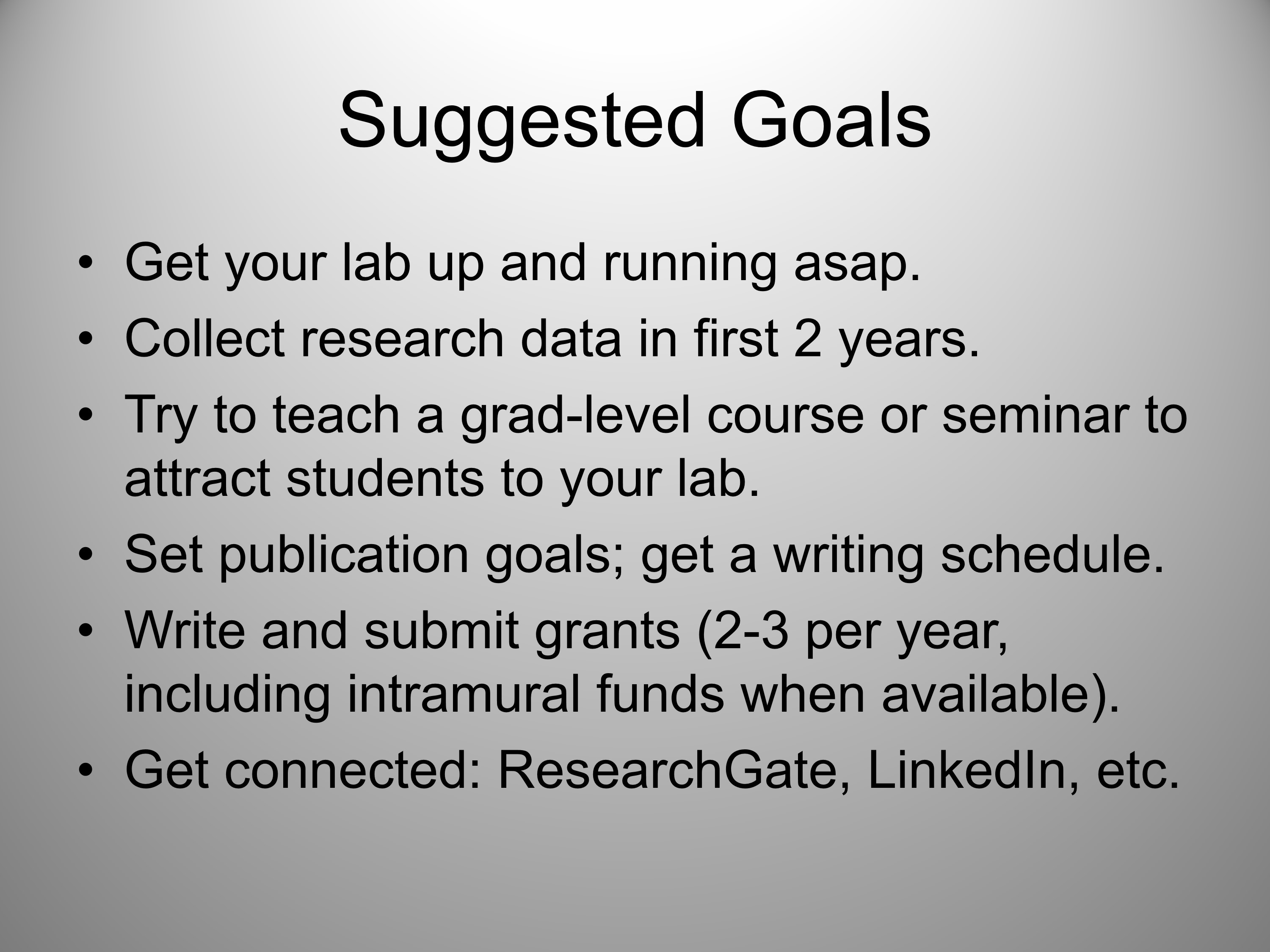
What to do as you hit the ground.
First, get going quickly. Get your lab up and running as soon as possible. This is where start times are important. Order times for equipment. Get things in place. Don’t get there and have to wait around for months because your lab isn’t ready.
Collect research data in the first two years. Absolutely essential goal. Try to teach your grad level course in the first year so that you can attract students to your lab.
Set publication goals. Get a writing schedule. Write and submit grants — 2 to 3 a year; intramural and extramural.
Get connected. ResearchGate. LinkedIn, etcetera. Get your website out there. Make contact with people who are doing similar kinds of work.
Don’t be a prima donna.
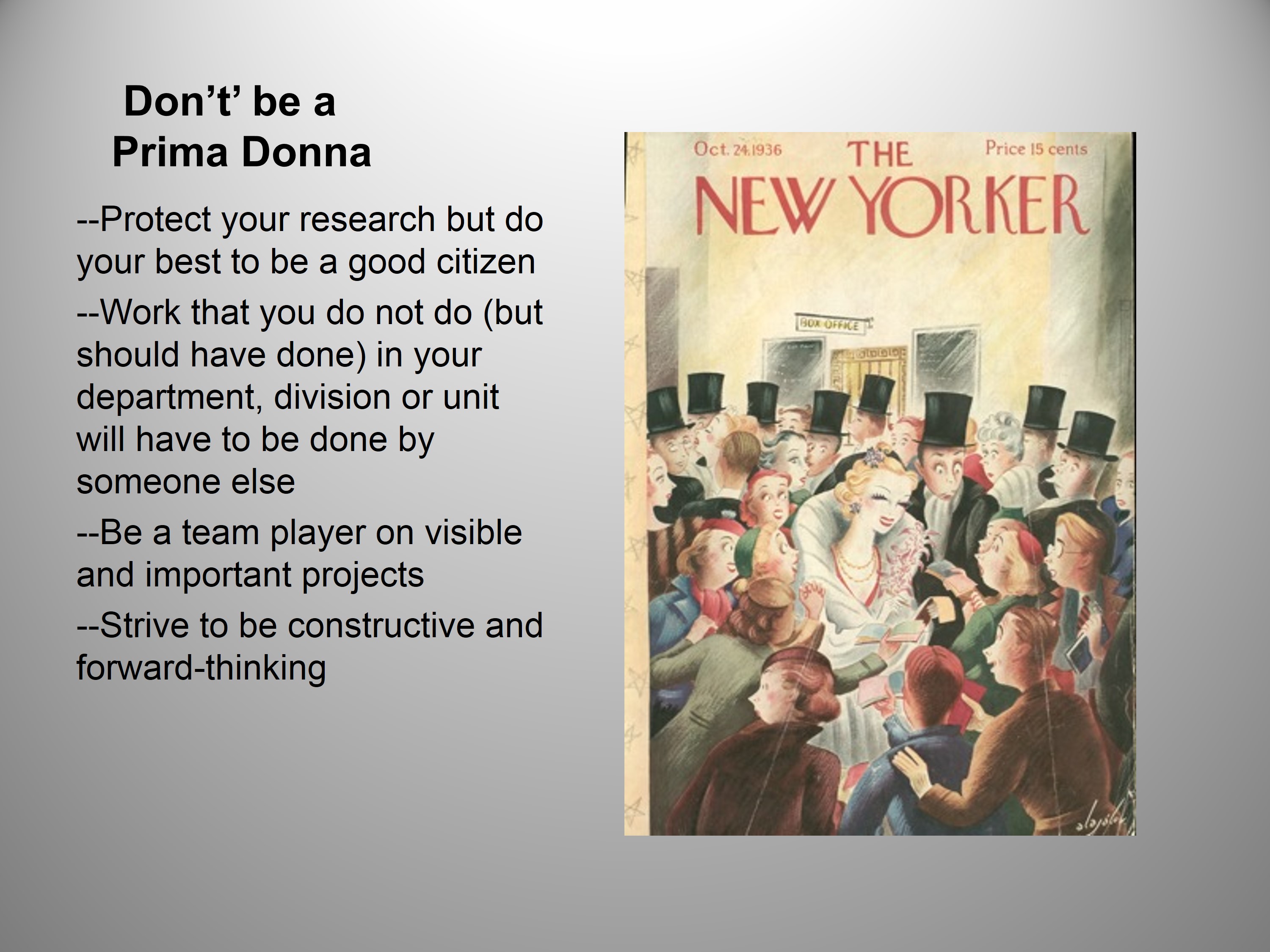
Protect your research, but do your best to be a good citizen. Work that you do not do, somebody else is going to have to do. And they’ll remember that. So if you’re given an assignment; you don’t do it. Those faculty members are going to say, well, we can’t depend on him or her.
Be a team player. Be visible. And strive to be constructive and forward thinking. Demonstrate that you are really a good department citizen.
Vital Signs for a Research Career
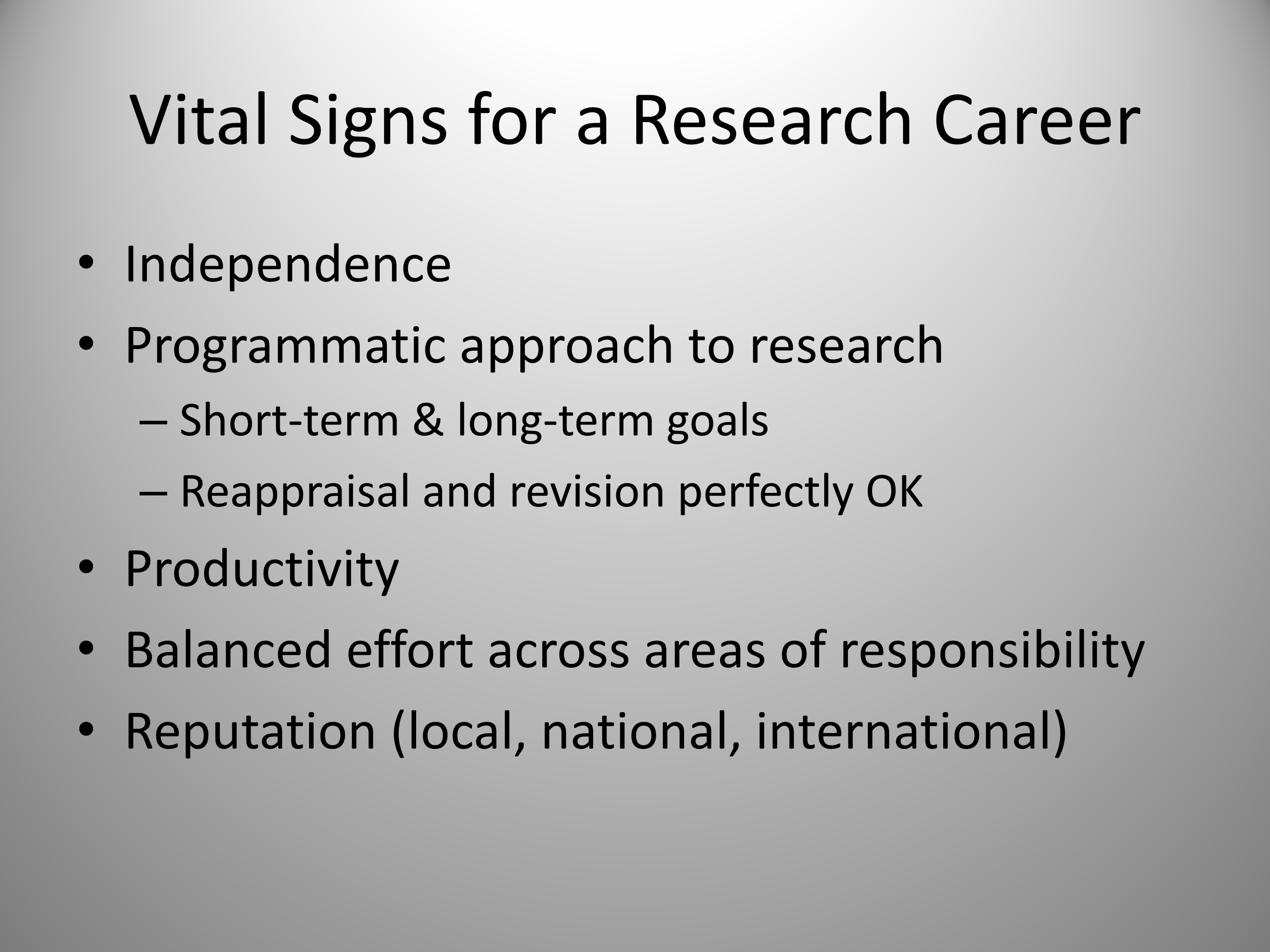
Vital signs for a research career would include things like independence. A programmatic approach to research — which we’ll talk about in the next session. Productivity: have a balanced effort across areas of responsibility and reputation.
Programmatic Research
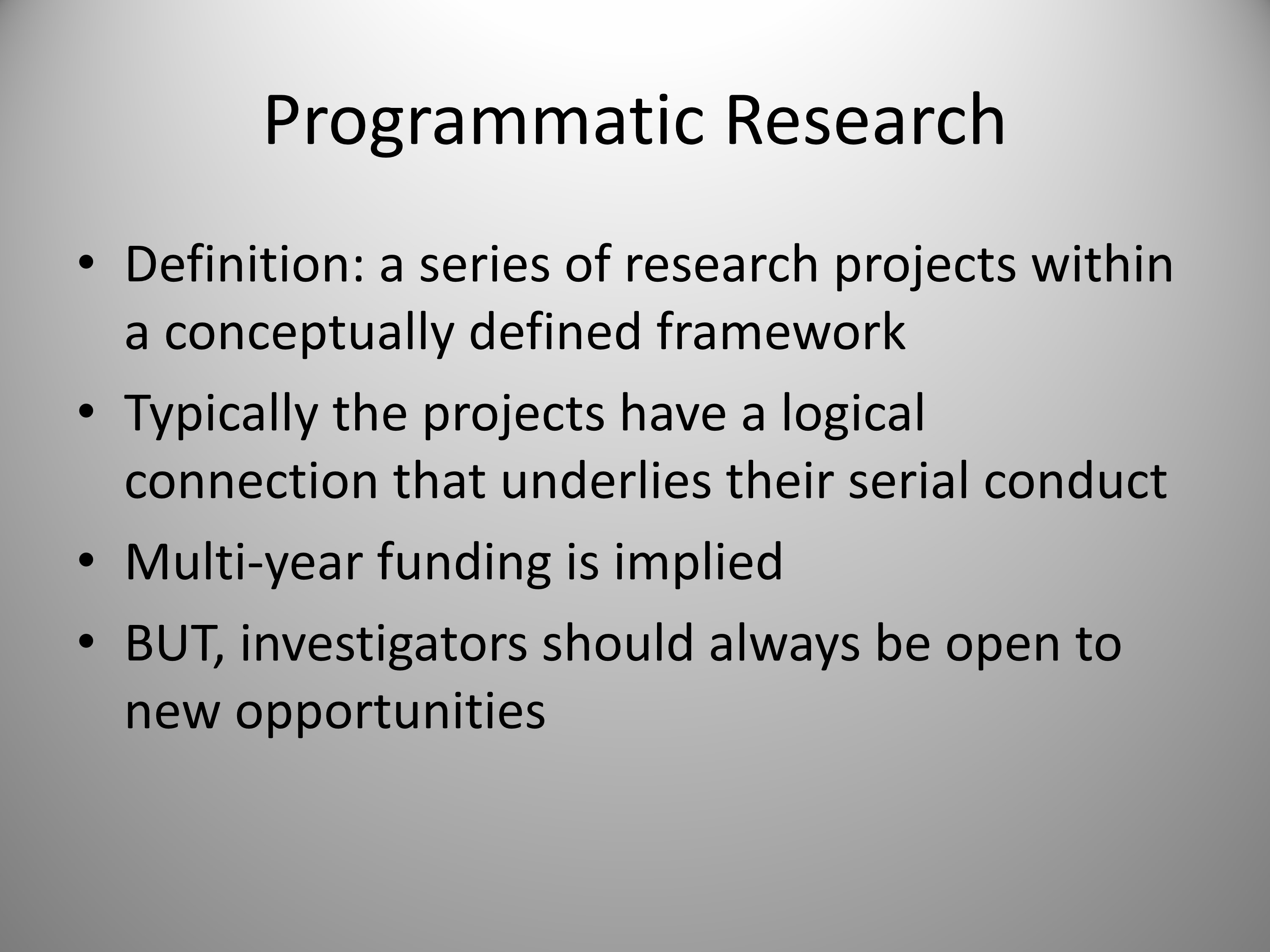
Programmatic research. That’s what you’re really selling is a program. Not a project, a program. You’ll want to have a series of research projects that are tied within a conceptually defined framework. Typically the projects have a logical connection that underlies their serial order. So there’s a reason to conduct these in a particular sequence.
Multi-year funding is implied. And of course if it’s not, there’s no point in asking for a K award. No point in asking for an R01. You want to be able to think large enough that you can justify 5 years of support.
And investigators should always be open to new opportunities, because there may be things that happen that give you a new twist or wrinkle.
Advice culled from various sources.
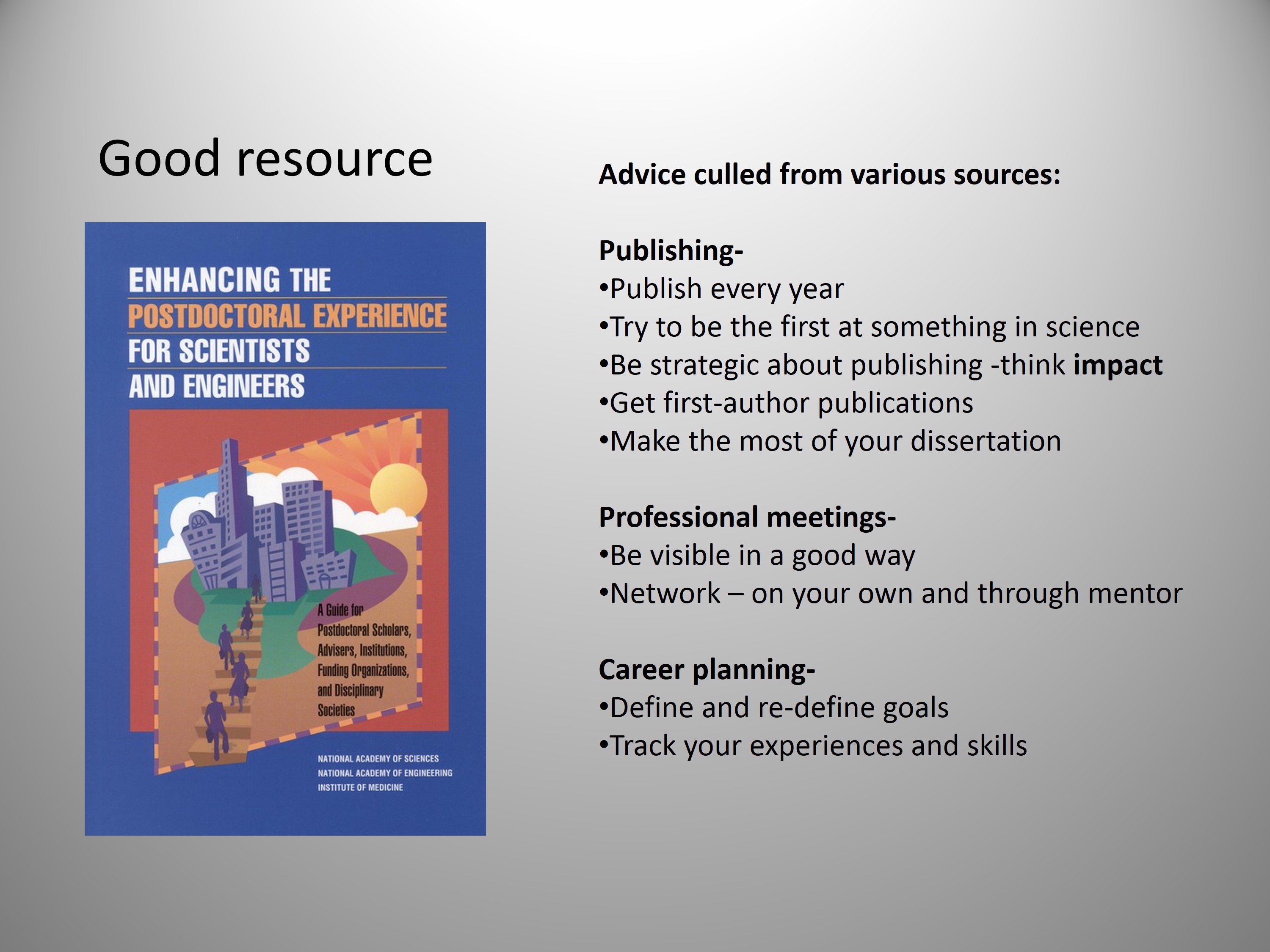
And this is just general advice, for more advice see the resource listed on the side on Enhancing the Postdoctoral Experience .
Publishing:
- Publish every year.
- Try to be the first at something, so people say he or she was the first one who did that. First one who recorded that. First one who modified this theory.
- Be strategic about publishing. Think impact. Not just impact factor, but different types of impact factors. And know what those impact factors are for the articles you publish. So when it comes time for tenure and promotion, you can feed this to the tenure and promotion committee, and say this is why these articles were highly regarded. They have recognition.
- Get first author publications. If you’re going up for tenure, don’t hope to do so on the basis of publications where you never appear as first author. You’ve got to do that. Because that is the sign of an independent investigator.
- Make the most of your dissertation. Some people do the dissertation. They want to forget about it. They never publish it. That is a good publication. It ought to be. Sometimes more than one. Absolutely do that. Get your publication dissertation published.
Professional meetings:
- Be visible in a good way.
- Network.
Career planning:
- Define and redefine goals. Which we’ll be doing here today.
- Track your experiences and skills.
Be a scientific world citizen
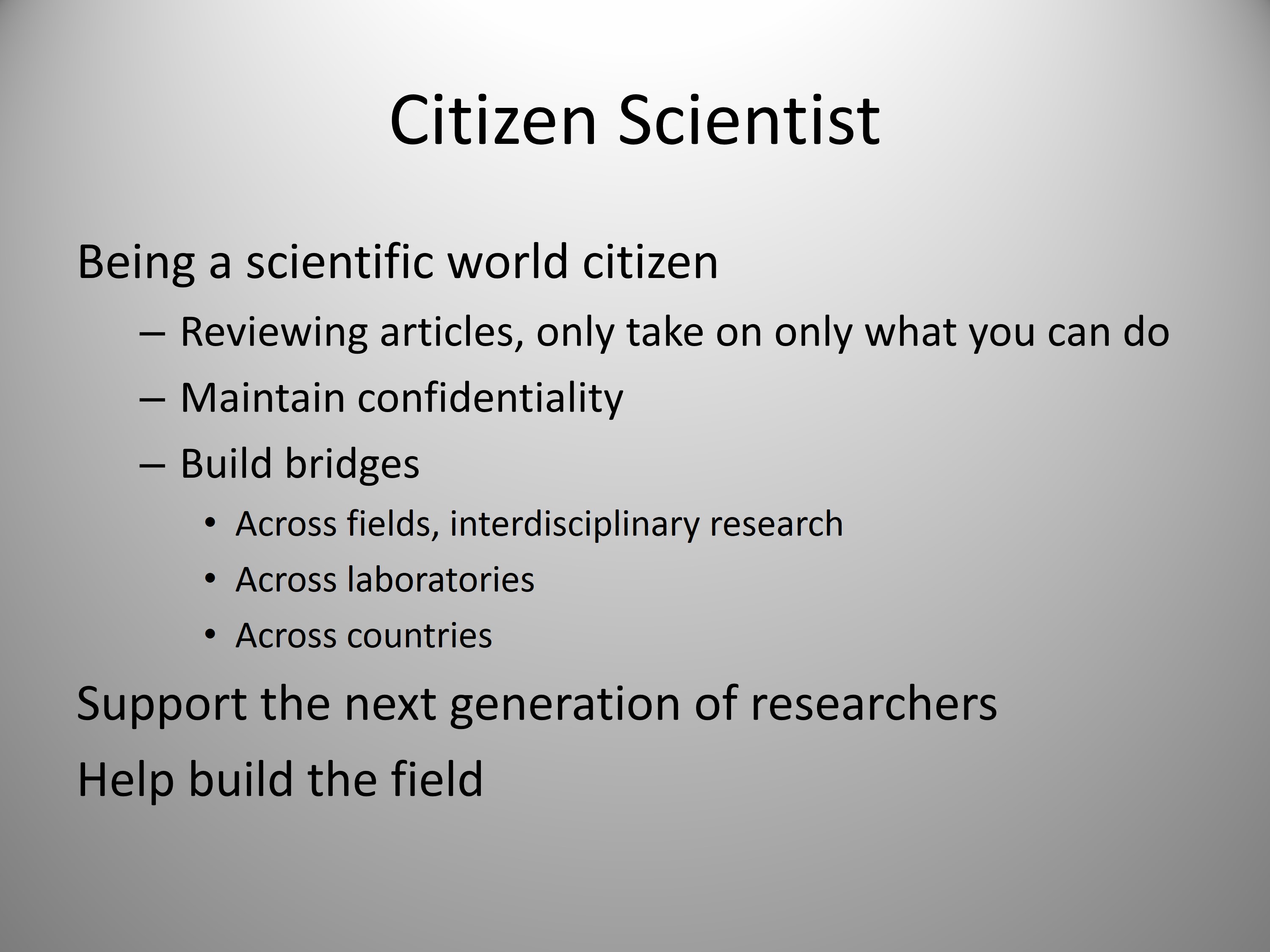
So I hope for each one of you, we’ll have some idea about whether it’s for yourself. Or whether it’s for somebody you’re advising. You can give advice on postdoc or not. Where should I publish? What journals are appropriate? What kind of grants should I submit in early career? How to negotiate for a position. And how to survive and thrive in the first three years. And while I’m getting my voice back, we will then go and we’ll discuss how to develop a research plan.
References
National Academy of Sciences, National Academy of Engineering, Institute of Medicine (2000). Enhancing the Postdoctoral Experience for Scientists and Engineers: A Guide for Postdoctoral Scholars, Advisers, Institutions, Funding Organizations, and Disciplinary Societies. National Academies Press. Available at http://www.nap.edu/catalog/9831/enhancing-the-postdoctoral-experience-for-scientists-and-engineers-a-guide.





